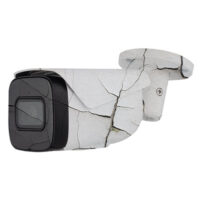When Is A Business Or Property Owner Liable For Negligent Security In Florida?

Premises liability is an area of law that holds that a business or property owner can be held legally responsible for certain accidents that occur on its premises. For example, a Florida property owner may be liable for injuries caused by its failure to conduct proper maintenance. Premises liability law in Florida also requires businesses and property owners to take adequate security precautions.
Indeed, a business or property owner in Florida may be liable for harm caused by a third party criminal attack if that attack happened because of its failure to take the proper security precautions. Here, our Orlando negligent security attorney explains what you need to prove to hold a business/property owner liable for negligent security in Central Florida.
Four Steps to Establish Liability in a Negligent Security Lawsuit in Central Florida
Step #1: A Duty of Care
The first step to establishing liability in a negligent security lawsuit in Florida is proving that the defendant (business or property owner) actually owed the plaintiff (injured victim) a duty of care. Businesses and property owners in Central Florida have a duty to care for the safety and well-being of customers and other permitted guests. However, they owe very limited duty to trespassers. A trespasser typically cannot bring a successful negligent security claim in Florida.
Step #2: Breach of Duty of Care
The next step to proving liability is establishing a breach of the duty of care. This is the core of any negligent security lawsuit. The plaintiff must prove that the business or property owner did not take security measures that were at least as good as a reasonably prudent person would have done under similar circumstances. For example, imagine that a criminal attack occurred because a hotel had broken latches on its windows. That hotel may be liable for negligent security.
Step #3: Proximate Cause (Nexus)
A Florida court explains the standard well in the case of Aguila v. Hilton, Inc. In that premises liability lawsuit, a court held that a hotel could not be held liable for a DUI accident even though the drunk driver got intoxicated on its premises. The hotel in question was located in North Florida and advertised itself as a “Spring Break” destination. However, the court determined that there was not a sufficient nexus (proximate causation) established between the defendant’s conduct and the victim’s injuries.
Step #4: Injuries (Damages)
Finally, you must prove actual harm to bring a successful negligent security claim in Florida. Although punitive damages may be granted in a limited number of negligent security cases, a plaintiff’s ability to recover compensation will generally depend on the severity of their injuries and the extent of their economic and non-economic damages.
Call Our Orlando, FL Negligent Security Lawyer for Immediate Help
At The Baez Law Firm, our Florida premises liability attorney has the legal skills and experience to handle negligent security cases. If you or your loved one suffered harm due to a criminal attack, we can help you explore every option for recovery compensation—including holding a business or property owner legally liable. Contact us today for a no cost, no commitment consultation. From our Orlando office, we handle negligent security claims throughout all of Central Florida.
Source:
casetext.com/case/aguila-v-hilton-inc-1
